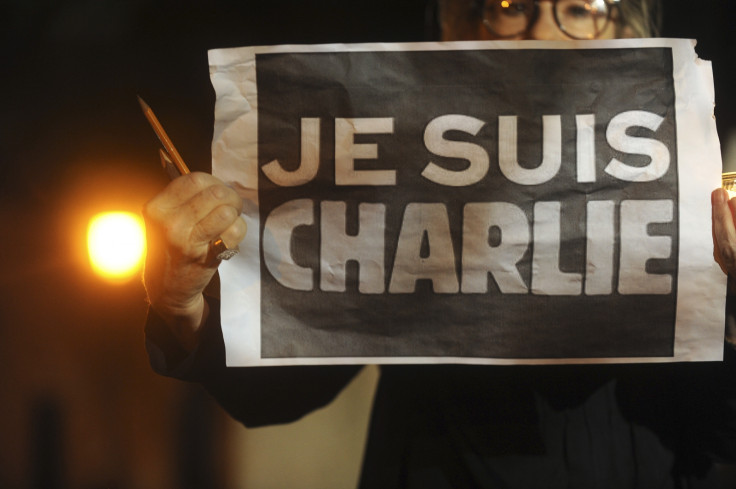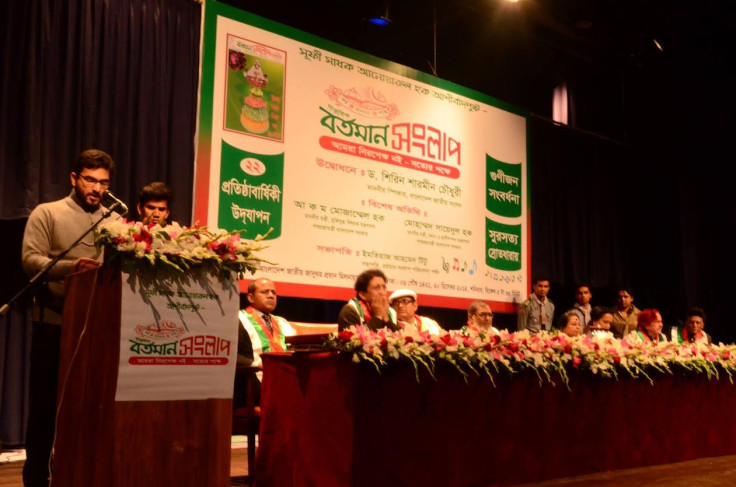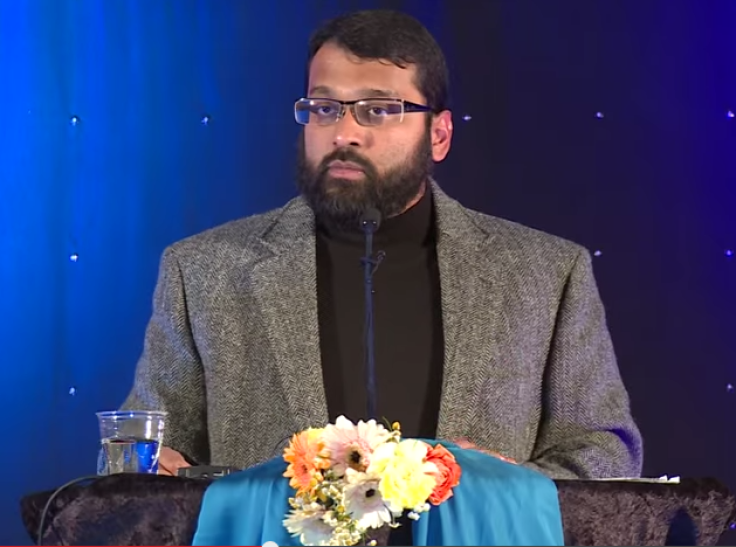Paris massacre: People who kill in name of Islam 'can only be stopped with counter ideology' - Hasan mahmud

Hundreds of people in the world are at risk of being tortured and killed for blasphemy and for "mocking Islam".
Saudi Arabian activist Raif Badawi, accused of "ridiculing Islamic religious figures", was publicly lashed 50 times on 9 January and he will be lashed every week for the next 20 weeks.
This happened only a few days after French satirical magazine Charlie Hebdo was the target of an attack that left 12 people dead, killed by masked gunmen who claimed to "be from al-Qaeda".
According to Hasan Mahmud, sharia law expert and general secretary of Muslims Facing Tomorrow (MFT), Muslims who commit acts of violence are indoctrinated and only believe in sharia law.
Sharia, also known as Islami Qaqun, is the legal code and religious law of a prophetic religion, and represents Islam's legal system. Contrary to what many believe, sharia does not come only from the Quran or the Prophet's examples (Hadises), as there are at least 11 sources of the law.
Mahmud explained these documents promote violence and go against the teachings contained in the Quran.
He said: "Muslims violate Quranic verses when they kill in the name of Islam. They stick to those documents without realising that the more they are violent, the more mockery there will be.
"Everybody has grievance; but the nature of protest proves the nature of the protester. These people kill because they believe this is their ticket to heaven and they only follow sharia law, which they believe is above any other law. Therefore, killers in Paris - or anywhere else in the world - follow their own sets of laws, which give them rights and obligations, obligations to kill with immunity."
Sharia law can only be stopped with a counter ideology
Mahmud believes the backbone of radical Islam is sharia law.
"No matter how we approach the violence committed by Muslims in the name of Islam, it ultimately boils down to sharia law: a violent interpretation of Islamic scriptures that is a betrayal of the Quran and of human rights, especially women's rights," he said, explaining this indoctrination can be defeated only by promoting a counter ideology.
To serve this purpose, Mahmud and MFT created the Radical Free Village movement, which aims to break the connection between sharia law and the Quran.

He said: "Violence is taking place in the name of Islam and this can only be stopped by bringing back peaceful Islam.
"Sharia is about brainwashing and it cannot be defeated by violence or state law but only by providing an alternative ideology, and this is what we are doing."
Members of the Radical Free Village handed out copies of the book How Sharia Hijacked Islam in several villages in Bangladesh. MFT also made a movie, The Sharia Conundrum, to be screened in the villages to help break the concept that sharia law is Allah's law.
Meanwhile, Radical Free Village movement recently received an award in Bangladesh for the efforts made by Mahmud and his team to promote messages of peace and tolerance and eradicate violence.
There are factors more important than religion behind attacks
According to American Muslim scholar Yasir Qadhi, who has been described as one "of the most influential conservative clerics in American Islam", religion is not the only factor that drives people to kill in the name of Islam. There are also sociopolitical and economic components to take into consideration.
Referring to the Charlie Hebdo massacre, Qadhi told IBtimes UK: "The increasing popularity of far-right groups, especially in France, coupled with the wide-spread discrimination against France's Muslim population already feeds into a mentality of 'us versus them'.
"As well, the colonial history of France and its relationship to Algeria and other North African regions plays a role. This is in no way an attempt to justify such attacks, it is merely pointing out that other factors actually play a more important role than religion."

According to Qadhi, some Muslims have created a "do-it yourself Islam". In the case of France, this could be explained by the fact that Muslims who feel alienated and disenfranchised find meaning in radical Islam.
"The internet, Google and YouTube in particular, make it extremely easy to be connected with radical Imams who typically do not have any training or popularity with mainstream Muslim societies, and who thrive off the popularity that the anonymous global audience of the internet can provide," Qadhi said.
"Muslim clerics who are trained in the tradition understand that freedom of speech in a liberal democracy is a two-way street: it gives Muslims the freedom to practice their faith, and it also allows others to criticise the faith of Islam.
"Muslims would hope and wish as well that some modicum of decency is shown to their holy symbols, but are not calling for the banning and criminalisation of such speech."
